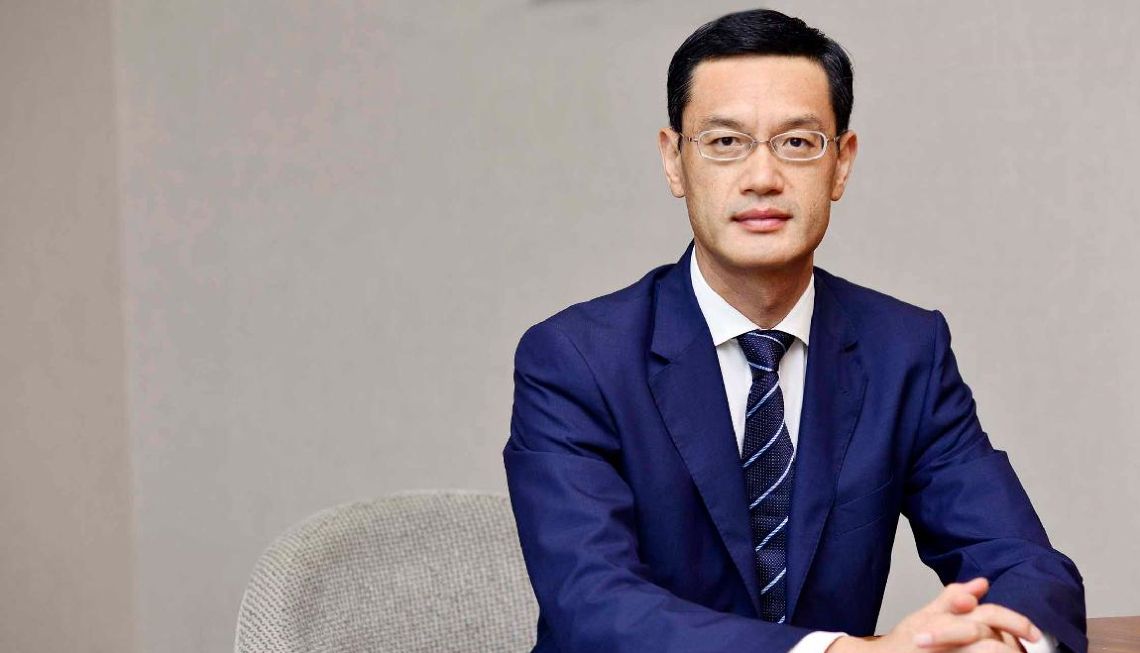PARTNER
How Asia can develop new digital talent
By Huawei
Interview with Jay Chen, Vice President of Huawei APAC.

To unlock the talent and opportunity within each of us, sometimes a little external support is needed. Citizens and governments have the opportunity to learn about the latest digital trends and cutting-edge technology with the help of private companies.
Jay Chen, Vice President of Huawei APAC discusses its solution to Asia’s digital talent shortage and what it is doing to help build the tech capabilities of citizens and governments.
Asia’s digital skills shortage
The region is suffering from a significant shortage in tech talent, says Chen. Asia Pacific faces a talent shortage of around 47 million workers, research has shown.
“The pandemic has only made the shortage of ICT talent in the region more obvious,” he explains. The digital transformation projects many nations undertook during the pandemic has made “the pressure much bigger” on Asia’s tech talent.
The Asia Pacific region has a large population, many of whom are familiar with the internet. While this can provide unique opportunities, it also means that digital transformation must be able to meet the high requirements of these citizens, Chen says.
Knowledge sharing with the public sector
Governments are giving private industries a new responsibility, says Chen. Tech companies are helping to develop the next generation of digital talent, and building the skills of local communities around the region.
One way that Huawei is taking on this task is through its Asean Academies. These academies, already in Malaysia, Indonesia, Thailand and Cambodia, look to develop ICT understanding among high level leaders and the wider community.
They first work with government officials and industry leaders to provide information on successful tech case studies from around the world. Huawei shares its expertise on what has been achieved so far and what the direction of global tech is moving toward.
Huawei’s familiarity with international industry standards and digital trends enable it to advise government officials on next steps, says Chen.
Technology plans can’t be copied exactly from country to country, he explains. Public sector officials discuss with the academies which unique approach needs to be taken for successful digital transformation in their nation.
In Indonesia, over 100,000 people, from carriers, enterprises, universities, local communities and also public sectors, will attend the academy by 2025, he highlights.
Developing digital skills in the community
The academies also develop skills amongst communities in the region. Cloud technology is still relatively new to Asia Pacific, and citizens aren’t yet aware of the benefits it can provide, Chen gives as one example.
Huawei helps encourage small business owners to adopt the cloud, boosting their efficiency and helping the local economy in the process, he adds.
Another way of raising awareness about ICT skills is through universities. Huawei partners with universities and professors, with some classes now adopting the company’s training resources as textbooks, Chen highlights.
The tech giant is encouraging young people to become the digital talent of the future through interactive activities at universities. They organised hackathons and digital workshops in Singapore to get more young people engaged with the topic.
The big picture
Developing ICT talent is one of the most important ways that industries can prepare countries for the challenge of digital transformation, says Chen.
The academies are part of Huawei’s Seeds for The Future 2.0 initiative. This programme helps local communities by developing young talent, ensuring that they have the skills for the modern workplace.
The programme provides beginner and advanced courses on 5G, AI and Cloud technology. It also encourages participants to undertake group projects to tackle social issues such as environmental sustainability.
Meeting the demanding targets for digital transformation without the right talent will be an uphill battle for Asia Pacific. Private companies are getting involved and using their expertise to inspire a new generation of ICT experts.
To find out more about how digital talent is being developed in Asia, tune into this livestream of Huawei’s Digital Talent Summit for Asia-Pacific Innovation Day on November 3rd.